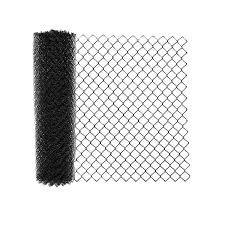The Beauty and Functionality of Gabion Rock Walls
Gabion rock walls, composed of wire mesh cages filled with stones, are both aesthetically pleasing and highly functional structures. Their unique design has gained popularity in various landscaping, civil engineering, and environmental applications. This article explores the benefits and uses of gabion rock walls, highlighting their versatility and environmental advantages.
One of the primary reasons for the widespread use of gabion walls is their ability to manage erosion. In areas prone to soil erosion, particularly near rivers or steep slopes, gabion walls can serve as a barrier against erosion caused by water, wind, and gravity. The stones in the gabions stabilize the soil, preventing it from washing away during heavy rainfall or flooding. This feature makes them an ideal solution for maintaining the integrity of roadways, highways, and riverbanks.
Moreover, gabion rock walls promote natural drainage. The porous nature of the filled cages allows water to flow through, reducing the risk of water buildup behind the wall. Unlike solid barriers, gabions prevent the formation of hydrostatic pressure, which often leads to structural failure in traditional retaining walls. As a result, gabion walls are not only durable and long-lasting but also an intelligent choice for managing stormwater effectively.
gabion rock wall

In addition to their structural advantages, gabion rock walls can enhance the visual appeal of any landscape. Available in various sizes and shapes, these walls can be customized to fit different design preferences. The use of natural stones allows for a seamless integration into the surrounding environment, providing a rustic yet sophisticated look. Landscape architects often incorporate gabion walls into gardens, parks, and outdoor living spaces, creating focal points that blend harmoniously with nature.
Another significant benefit of gabion walls is their sustainability. The materials used—particularly the stones—are often sourced locally, reducing transport emissions and supporting local economies. Furthermore, gabion walls can utilize recycled materials, promoting eco-friendly construction practices. Their long lifespan means fewer replacements, further contributing to sustainable development.
In the realm of wildlife conservation, gabion rock walls can also play a role. By creating habitats within their structure, they provide shelter for small animals and insects, thus supporting local biodiversity. The gaps between the stones can encourage the growth of vegetation, further enhancing the ecological benefits of these structures.
In conclusion, gabion rock walls exemplify the perfect blend of functionality and beauty. Their ability to combat erosion, enhance water drainage, and improve landscape aesthetics makes them a preferred choice for many applications. As society increasingly prioritizes sustainability, gabion walls stand out as an effective solution that respects both the environment and the need for durable infrastructure. Whether used for erosion control or as a stylish feature in landscaping, gabion rock walls undoubtedly make a significant impact.
















